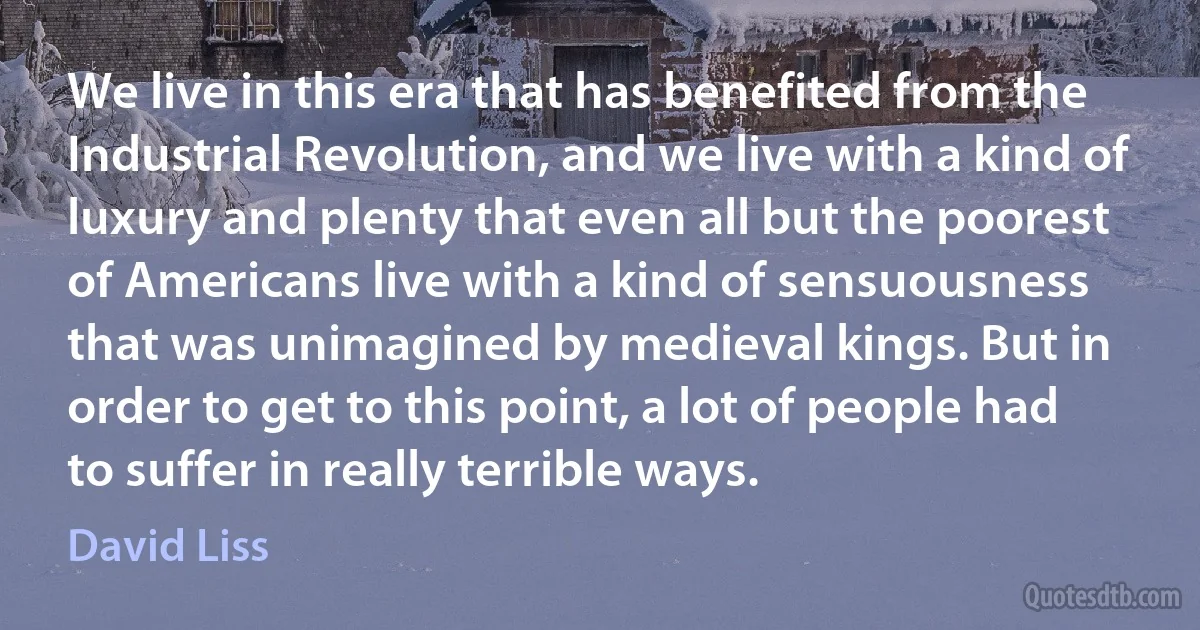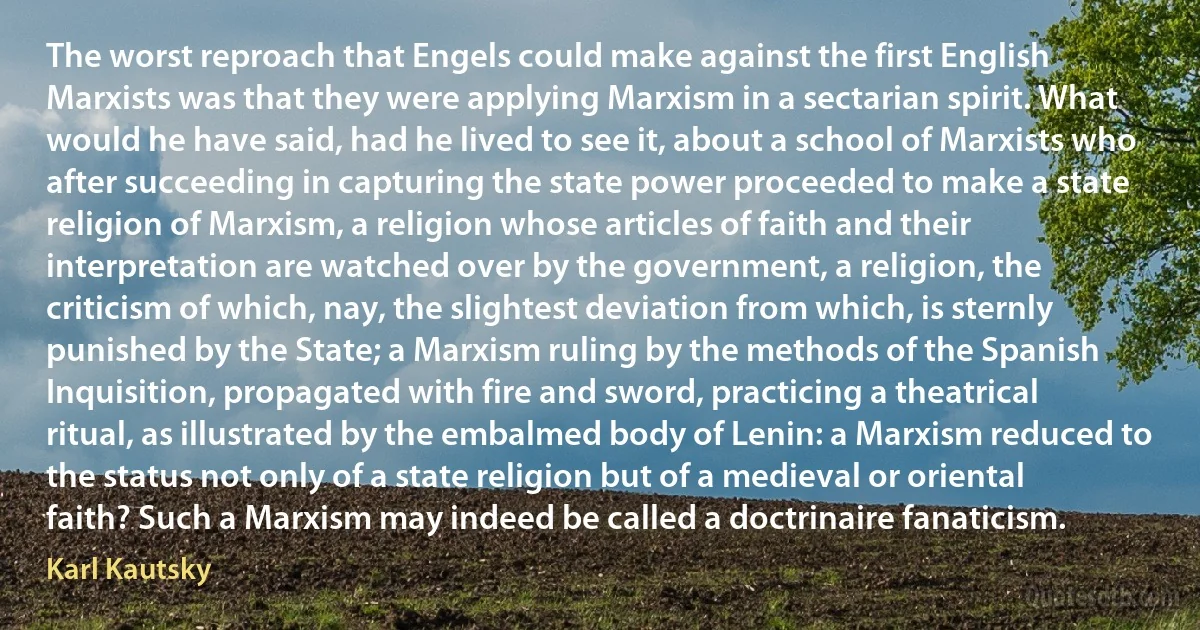Medieval Quotes - page 5
The human imagination has seldom had before it an object so sublimely ordered as the medieval cosmos. If it has an aesthetic fault, it is perhaps, for us who have known romanticism, a shade too ordered. For all its vast spaces it might in the end afflict us with a kind of claustrophobia. Is there nowhere any vagueness? No undiscovered by-ways? No twilight? Can we never really get out of doors?

C. S. Lewis
As a scholar I have been shaped by a monastic traditions and by the interpretation of medieval texts. Early on I took it for granted that the principal condition for an atmosphere that is propitious to independent thought is the hospitality cultivated by the host: a hospitality that excludes condescension as scrupulously as seduction; a hospitality that by its simplicity defeats the fear of plagiarism as much as that of clientage; a hospitality that by its openness dissolves intimidation as studiously as servility; a hospitality that exacts from the guests as much generosity as it imposes on the host. I have been blessed with a large portion of it, with the taste of a relaxed, humorous, sometimes grotesque fit among mostly ordinary but sometimes outlandish companions who are patient with one another.

Ivan Illich
For twenty years programming languages have been steadily progressing toward their present condition of obesity; as a result, the study and invention of programming languages has lost much of its excitement. Instead, it is now the province of those who prefer to work with thick compendia of details rather than wrestle with new ideas. Discussions about programming languages often resemble medieval debates about the number of angels that can dance on the head of a pin instead of exciting contests between fundamentally differing concepts. Many creative computer scientists have retreated from inventing languages to inventing tools for describing them. Unfortunately, they have been largely content to apply their elegant new tools to studying the warts and moles of existing languages.

John Backus
With the advent of medieval Scholasticism, ... we find a clear distinction between theologia and philosophia. Theology became conscious of its autonomy qua supreme science, which philosophy was emptied of its spiritual exercises, which, from now on, were relegated to Christian mysticism and ethics. Reduced to the rank of a "handmaid of theology,” philosophy's role was henceforth to furnish theology with conceptual-and hence purely theoretical-material. When, in the modern age, philosophy regained its autonomy, it still retained many features inherited from this medieval conception. In particular, it maintained its purely theoretical character, which even evolved in the direction of a more and more thorough systemization. Not until Nietzsche, Bergson, and existentialism does philosophy consciously return to being a concrete attitude, a way of life and of seeing the world.

Pierre Hadot
I had this sense that ideas about democracy, theories of democracy which I had learned about of course from graduate school on, from Aristotle and Plato onward, that they were inadequate. I don't want to diminish them; I have always retained a great respect for classical and medieval and eighteenth-century theory, but meanwhile a whole new kind of political system emerged to which the term democracy became attached, and for which democracy remained an ideal, even though classical democracy as an ideal was so far removed from reality. The gap between that ideal and the actual political institutions that had developed, particularly from about the sixteenth, seventeenth century on, was just enormous. And what we didn't have enough of, had very little of, was an adequate description of what the actual institutions of so-called democracy, modern democracy, representative democracy, were.

Robert A. Dahl
That a thing made by hand, the work and thought of a single craftsman, can endure much longer than its maker, through centuries in fact, can survive natural catastrophe, neglect, and even mistreatment, has always filled me with wonder. Sometimes in museums, looking at a humble piece of pottery from ancient Persia or Pompeii, or a finely wrought page from a medieval illuminated manuscript toiled over by a nameless monk, or a primitive tool with a carved handle, I am moved to tears. The unknown life of the maker is evanescent in its brevity, but the work of his or her hands and heart remains.

Susan Vreeland
In the East the existence of the invisible helpers has always been recognized, though the names given and the characteristics attributed to them naturally vary in different countries; and even in Europe we have had the old Greek stories of the constant interference of the gods in human affairs, and the Roman legend that Castor and Pollux led the legions of the infant republic in the battle of Lake Regillus. Nor did such a conception die out when the classical period ended, for these stories have their legitimate successors in medieval tales of saints who appeared at critical moments... or of guardian angels who sometimes stepped in and saved a pious traveler from what would otherwise have been certain destruction.

Charles Webster Leadbeater
I went and looked at one of these great cathedrals one day, and I was blown away by it. From there I became interested in how cathedrals were built, and from there I became interested in the society that built the medieval cathedral. It occurred to me at some point that the story of the building of a cathedral could be a great popular novel.

Ken Follett
Heron and Olympiodorus had pointed out in antiquity that, in reflection, light followed the shortest possible path, thus accounting for the equality of angles. During the medieval period Alhazen and Grosseteste had suggested that in refraction some such principle was also operating, but they could not discover the law.

Carl B. Boyer
Grosseteste appears to have been the first medieval writer to recognize and deal with the two fundamental methodological problems of induction and experimental verification and falsification which arose when the Greek conception of geometrical demonstration was applied to the world of experience. He appears to have been the first to set out a systematic and coherent theory of experimental investigation and rational explanation by which the Greek geometrical method was turned into modern experimental science. As far as is known, he and his successors were the first to use and exemplify such a theory in the details of original research into concrete problems.

Alistair Cameron Crombie
There is only one other survey, Datta and Singh's 1938 History of Hindu Mathematics, recently reprinted but very hard to obtain in the West (I found a copy in a small specialized bookstore in Chennai). They describe in some detail the Indian work in arithmetic and algebra and, supplemented by the equally hard to find Geometry in Ancient and Medieval India by Sarasvati Amma (1979), one can get an overview of most topics.

David Mumford
Truth is Thy primal word; at thy behest
The generations pass - O aid our quest
For Thee, and set my host of songs on high,
And let my psalmody come very nigh.
My praises as a coronal account,
And let my prayers as Thine incense mount.
Deem precious unto Thee the poor man's song,
As those that to thine altar did belong.
Rise, O my blessing, to the lord of birth,
The breeding, quickening, righteous force of earth.
Do Thou receive it with acceptant nod,
My choicest incense offered to my God.
And let my meditation grateful be,
For all my being is athirst for Thee.
from Millgram, A. E., Anthology of Medieval Hebrew Literature, Abelard, 1961.

Yehuda he-Hasid



